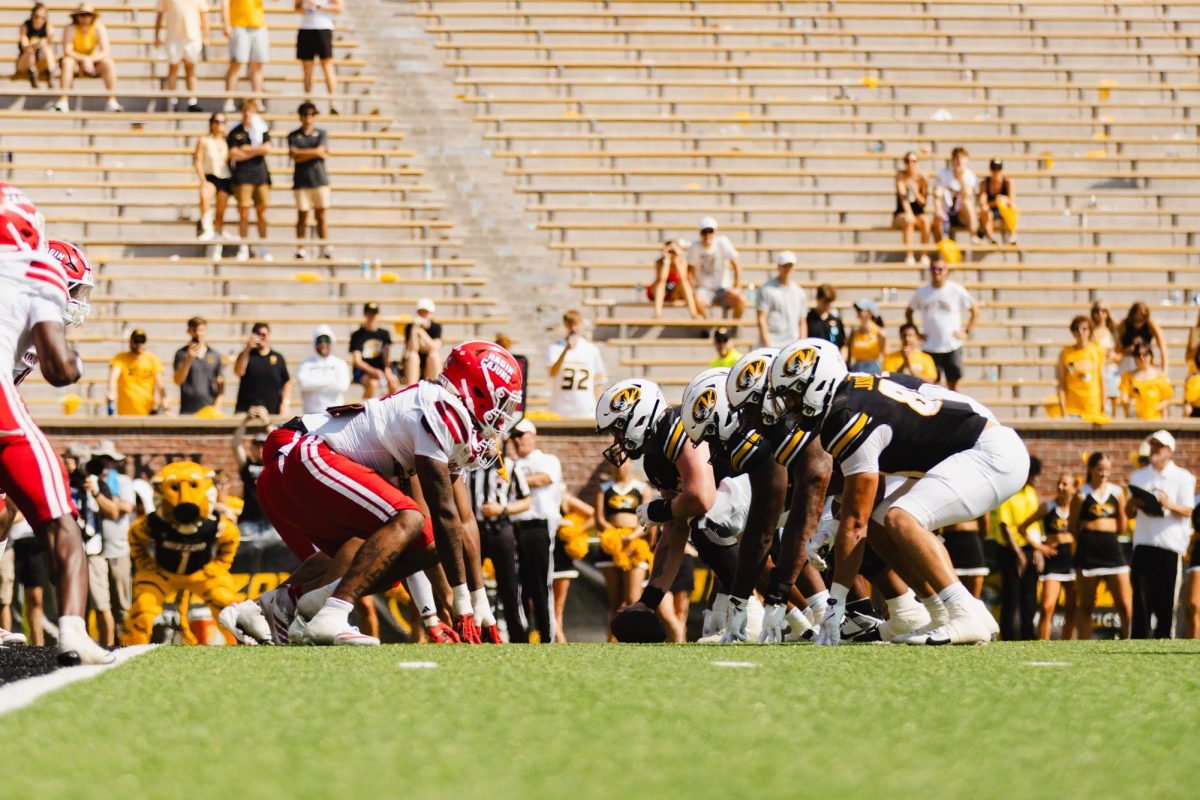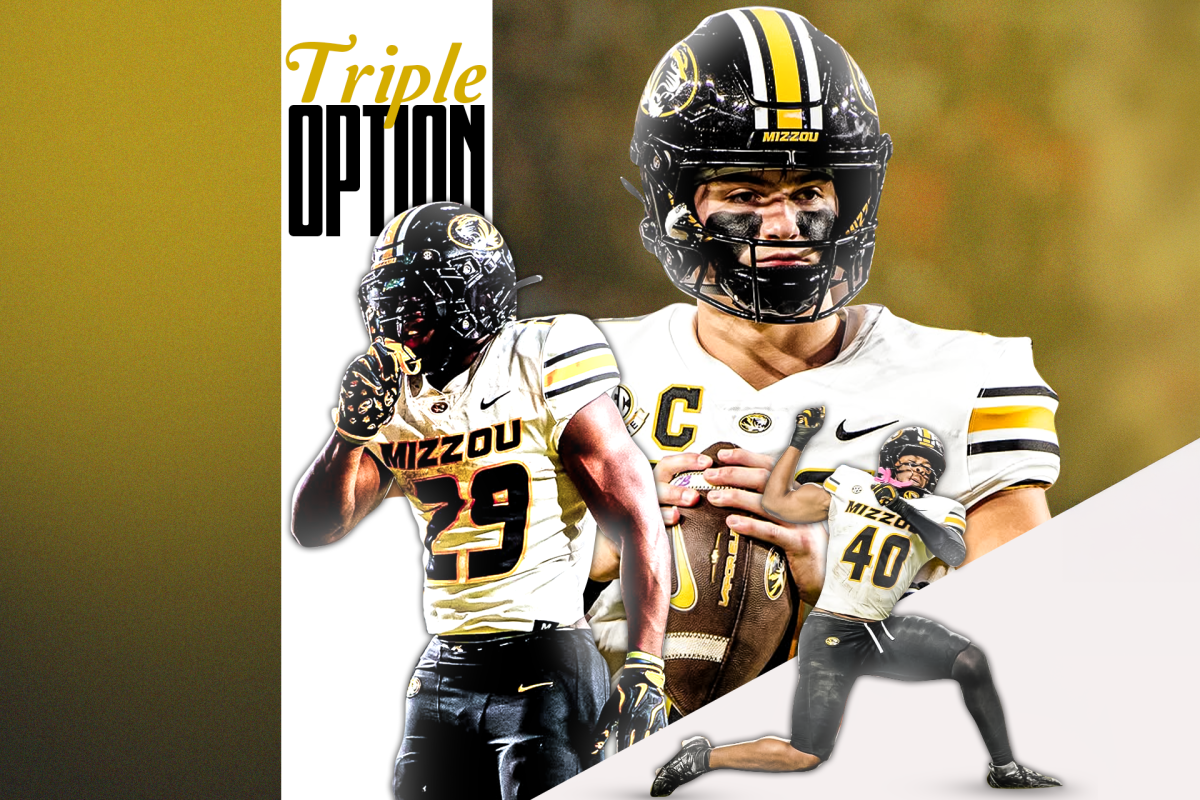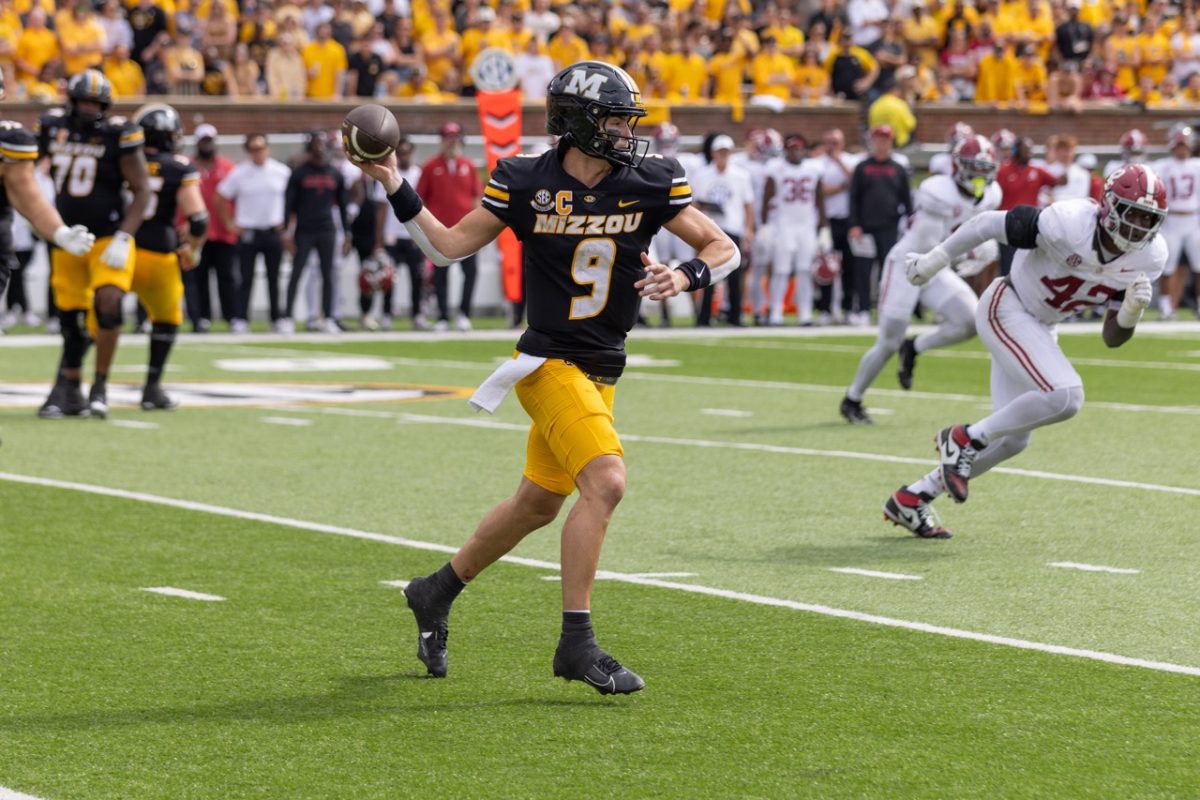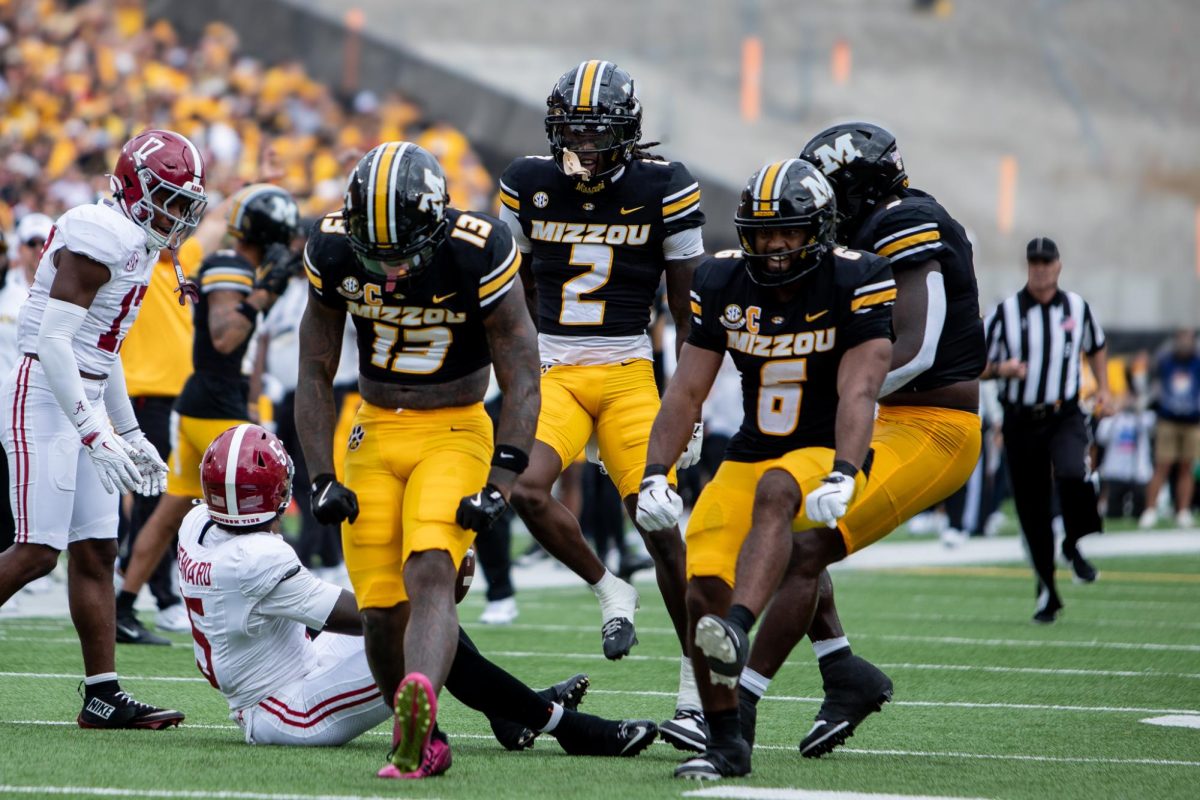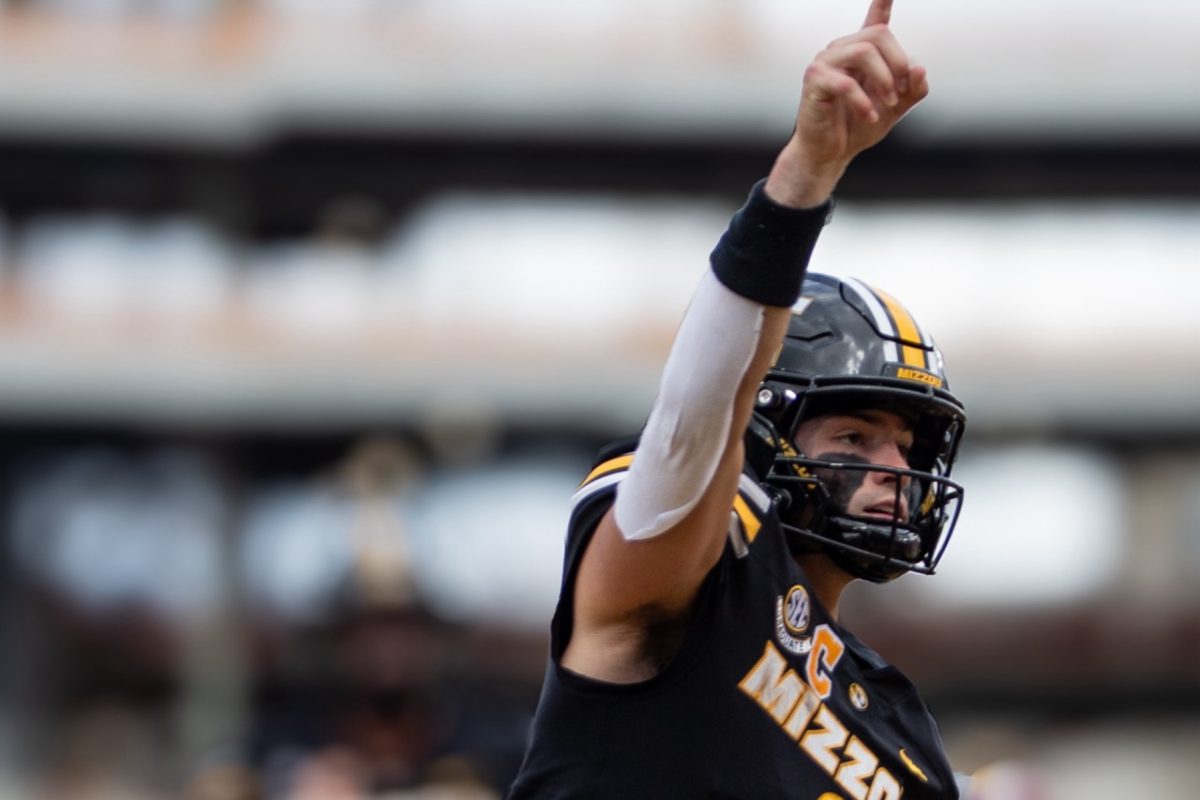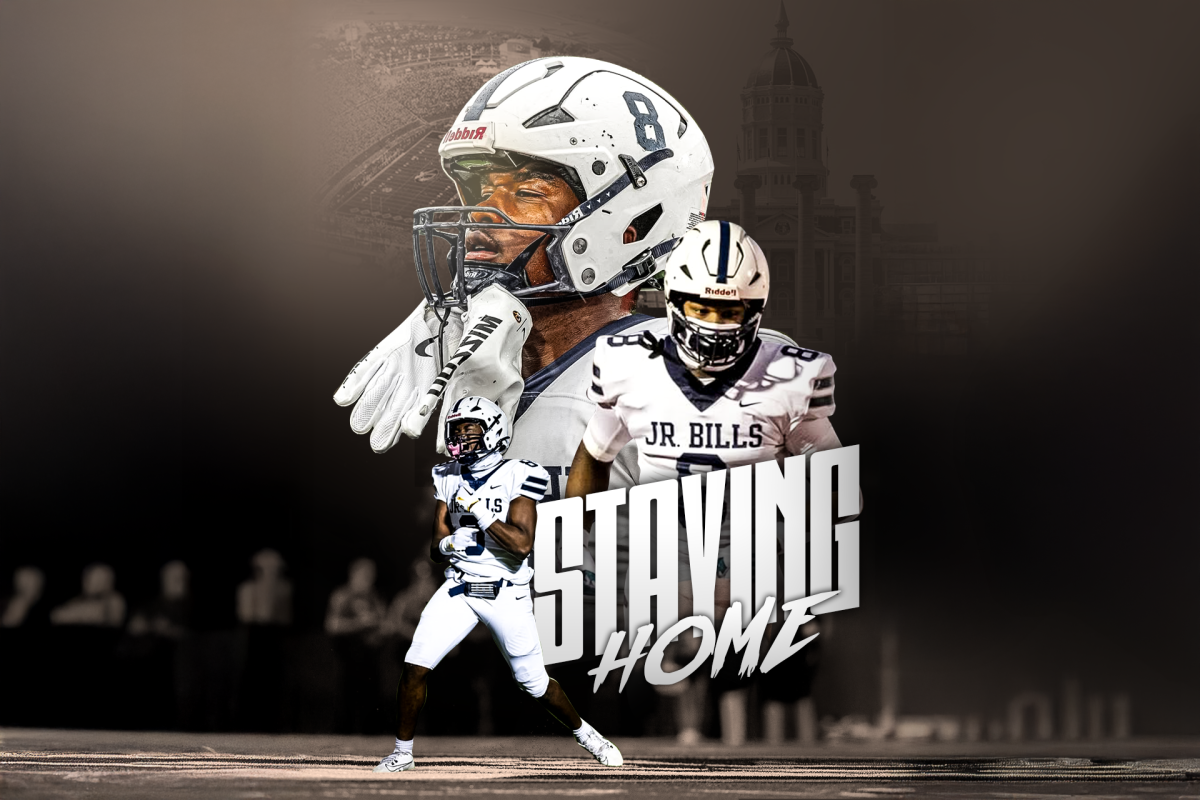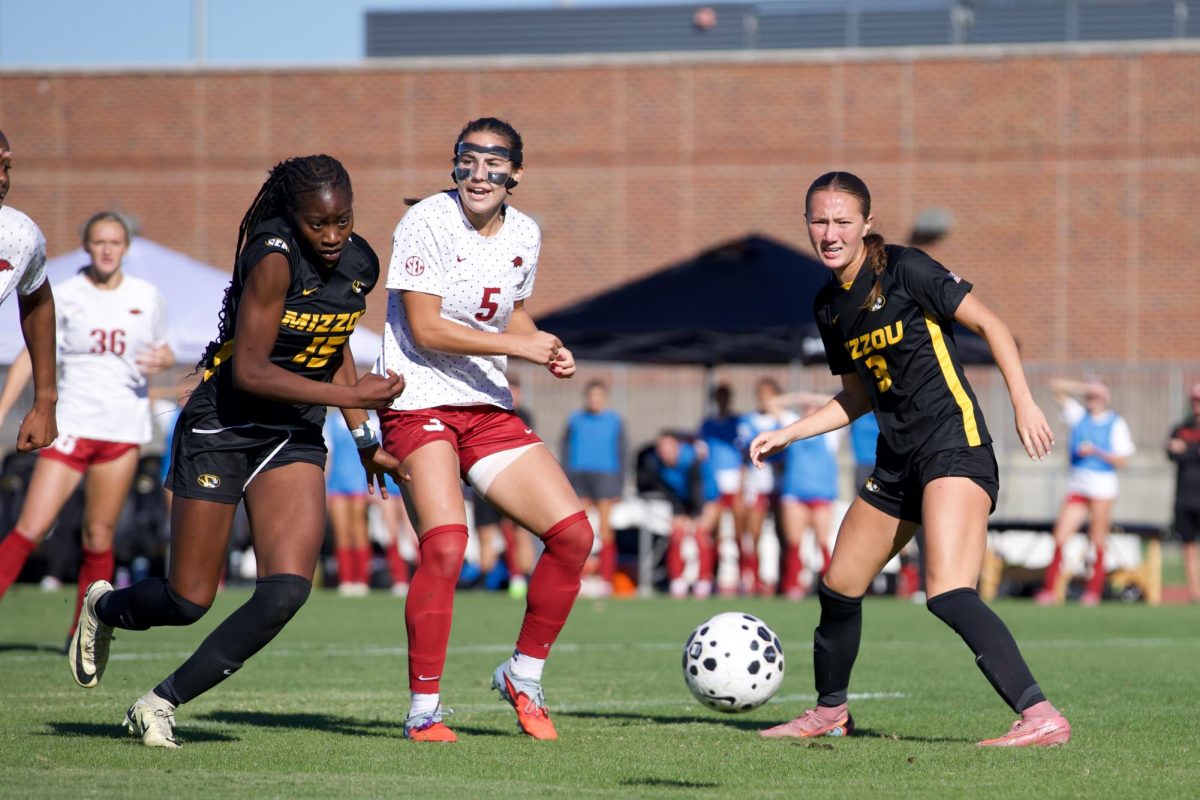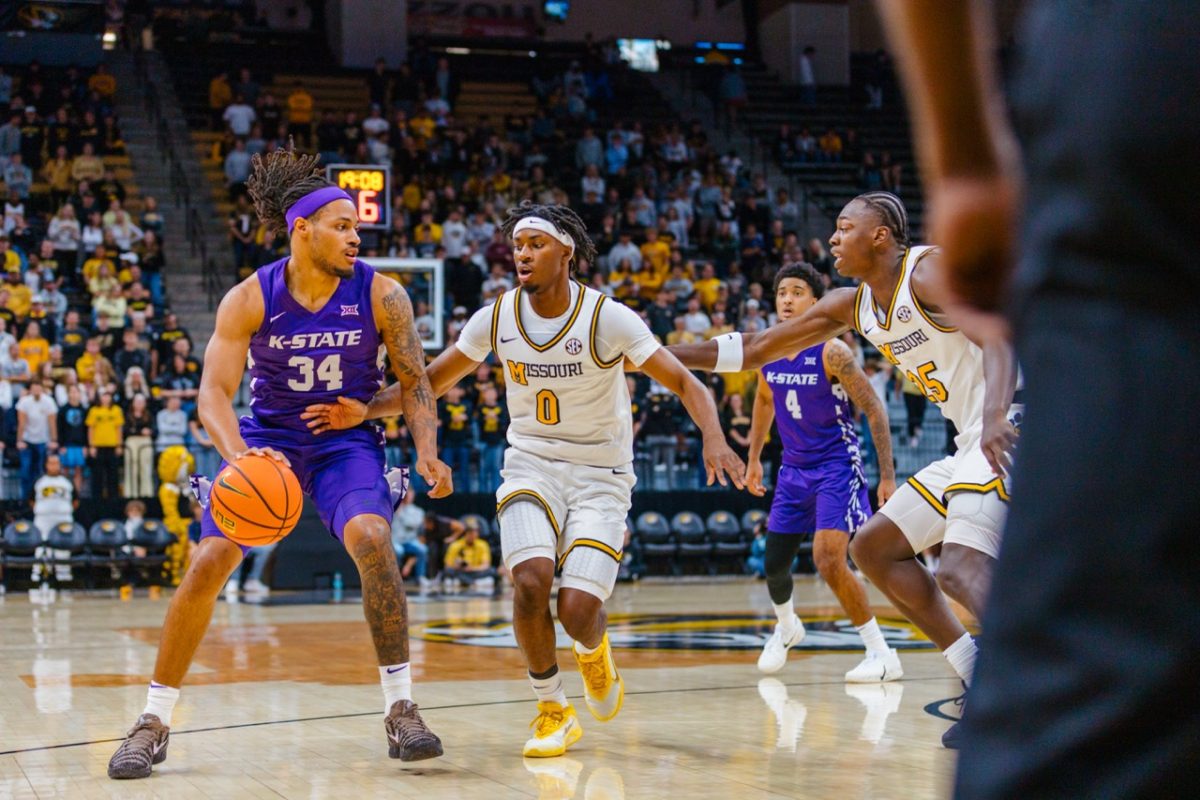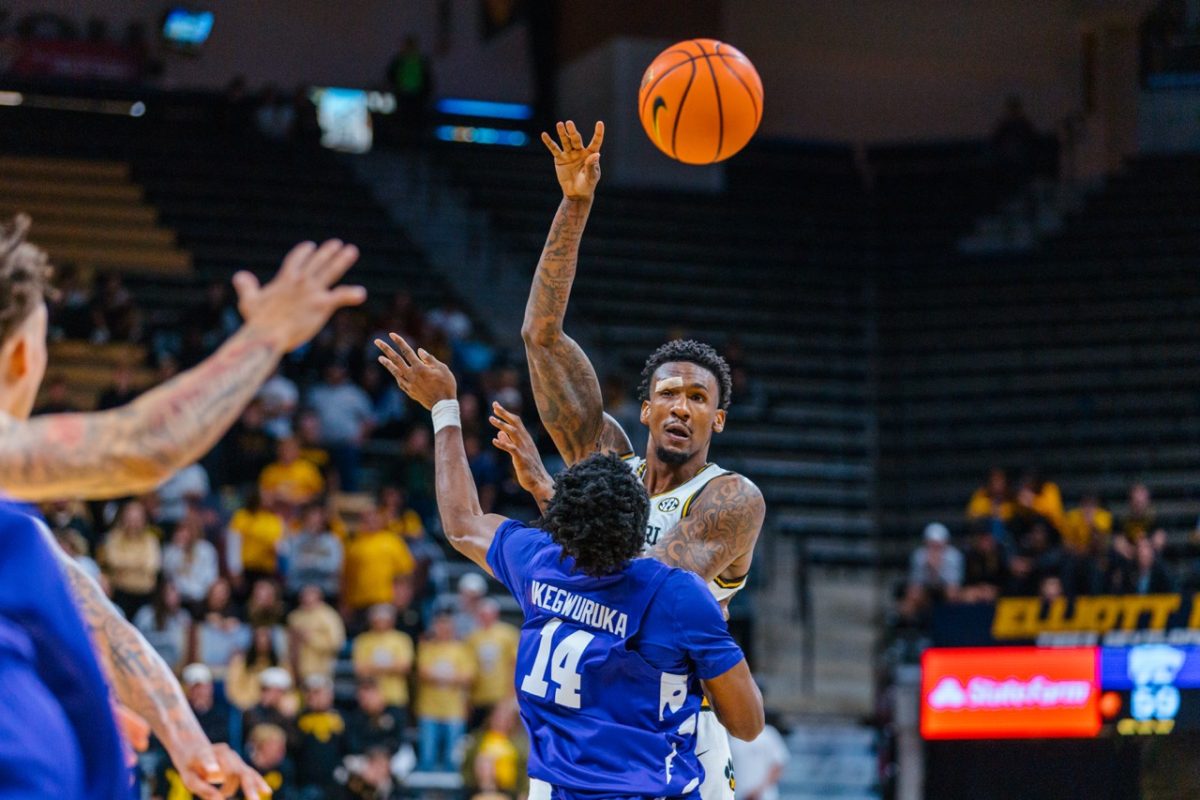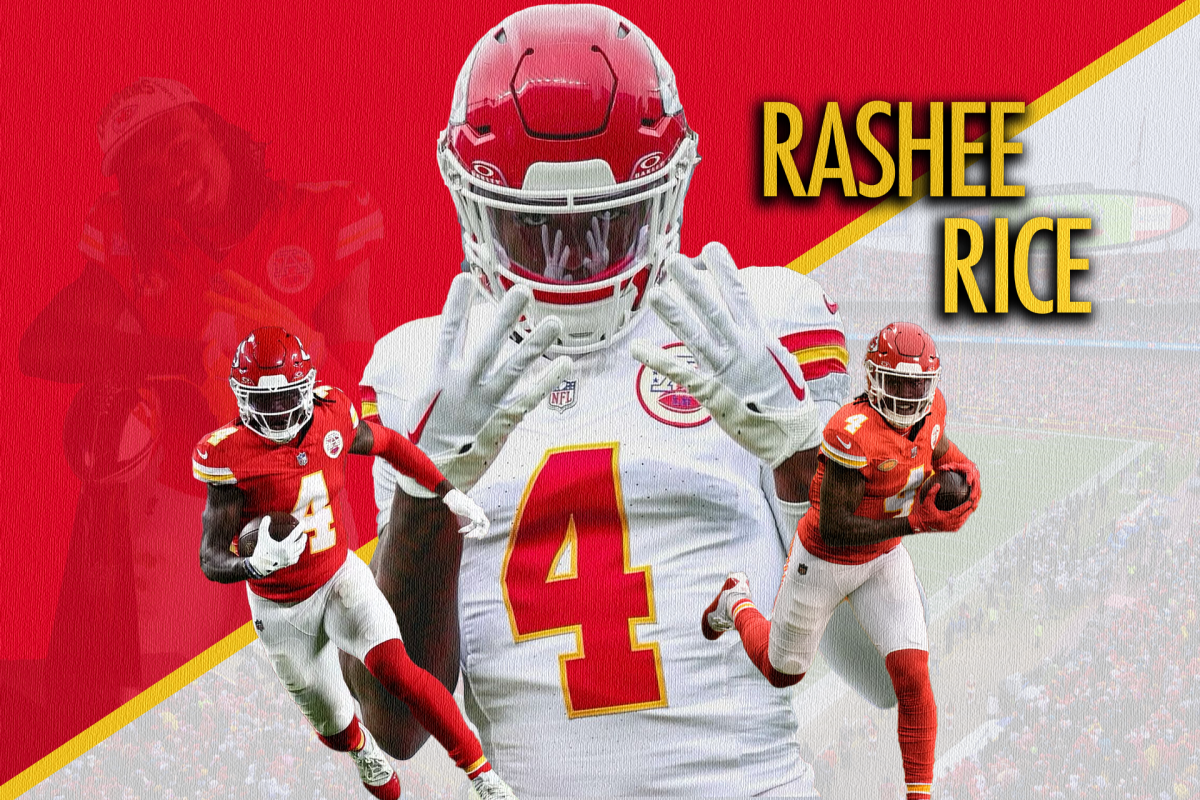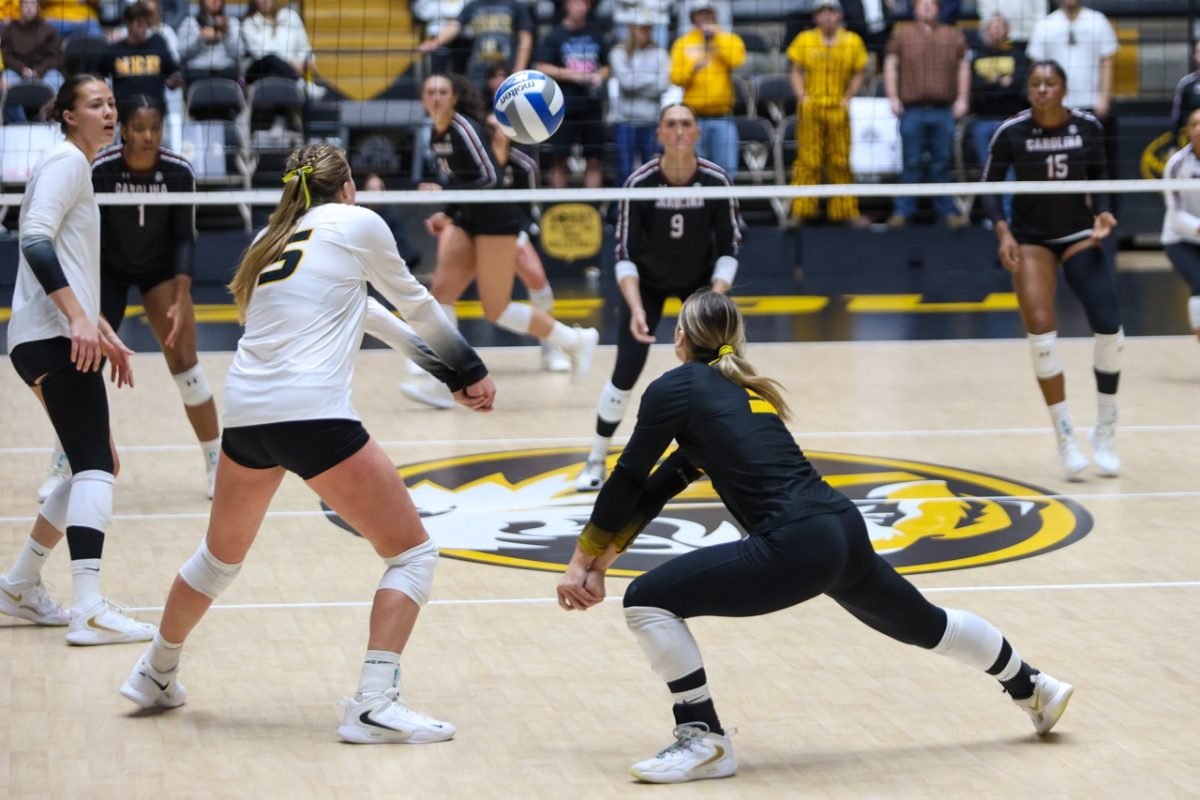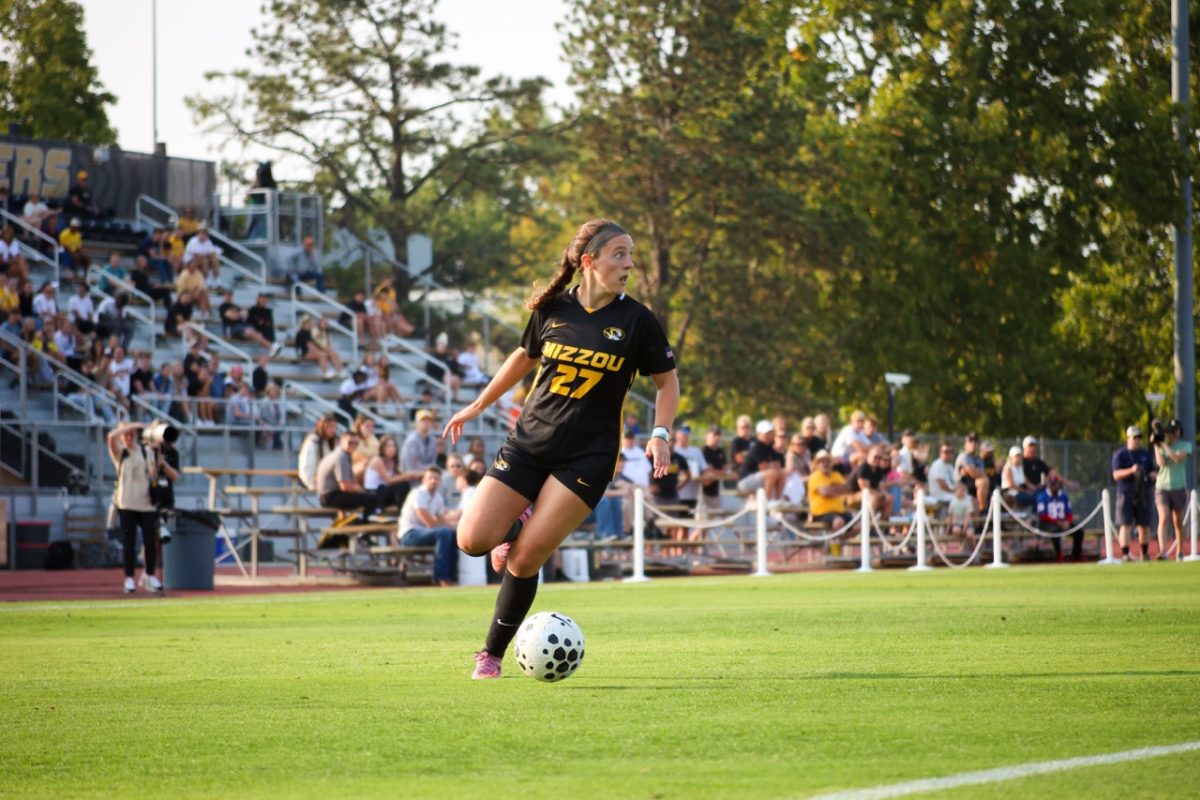Kobie Whiteside stood on the steps of Jesse Hall, gazing at a crowd of hundreds of fellow University of Missouri students and athletes. He would lead each and every one of them on a march across MU’s campus, protesting the murder of Black Americans by police and encouraging the student body to have a conversation about social justice.
Of the seven organizers and leaders of the March with Mizzou who began their evening on Sept. 2 on those steps, Whiteside, a star defensive tackle, was the only football player.
“When I called him, I reached out to have him and the football team help us with this march or participate in this march, there was no doubt in my mind that he’d be okay with it,” Cason Suggs, president and co-founder of the Mizzou Black Student Athlete Association, said. “That’s the type of person he is.”
The march came just days after the football team announced in a statement that they would be canceling practice on Aug. 28, in solidarity with the athletes around the world who boycotted their games in protest of the shooting of Jacob Blake in Kenosha, Wis.
The football team kept the details of how that day came to be in house, but Suggs knows Whiteside played a key role.
“I don’t know enough about who chose what and who decided what, but I know that when they had the cancellation of practice, [Whiteside] was one of the main people speaking. He was one of the main people organizing it,” Suggs said.
Whiteside is involved in the Mizzou BSAA, which Suggs co-founded in the wake of nationwide protests that followed the murder of George Floyd by police, as an ambassador from the football team.
“That’s why our paths crossed in that way, because they were like, ‘Oh, Kobie Whiteside is one of the people who’s making this cancellation of practice.’ I said, ‘Kobie, that’s my friend. I’ll definitely reach out to him.”
***
When Kobie Whiteside stepped onto the football team at Alief Taylor High School in Houston, it didn’t take long for him to make an impression.
“We used to do [wrestling] mat drills,” Brian Randle, Whiteside’s high school coach, said. “Well, nobody could beat Kobie one-on-one. It wasn’t even fair. So I was like, ‘Alright, look, give me two o-linemen versus Kobie.’ Two. So, we got two offensive linemen versus Kobie Whiteside. And when I tell you this is the God honest truth, Kobie grabs these kids, one in one arm and one in the next arm, picks them up and slams them both.”
At that point, Randle gave up.
“I was like ‘Alright boys, I don’t know,” Randle said. “There’s nothing else we can do to make it any fairer.’”
What was also apparently early, Randle said, was his inclination to do the right thing.
“If Kobie saw you bullying somebody, Kobie would be the first one to check you,” Randle said. “He didn’t like that kind of stuff. If you were taking advantage of somebody who couldn’t stick up for themselves, he’s that guy, he’s a protector. And we always say ‘Make sure you’re on the right side of history.’ He’s always on the right side.”
Randle continued, remembering how Whiteside would take action.
“Kobie is one of those kids that’s gonna stick up for that little skinny kid that everybody’s messing with,” Randle said. “You know, ‘You do it again, you’re gonna have to see me.’ I’ve heard him say that before.’ And I told that kid ‘Hey, you better leave that kid alone. I’m not getting in the way of Kobie.’”
Whiteside wasn’t directly involved in social justice initiatives in high school, at least to his coach’s memory. He attributes part of that to living in a diverse school district that includes over 31 spoken languages. He did, however, learn to use his voice to positively influence those around him.
“One of the mamas came to him — the little boy was in the ninth grade, Kobie was in the 12th grade — and the mama said ‘Can you please talk to my son?’” Dee Dee Whiteside, Whiteside’s mother, said. “I told him ‘She said, can you please talk to her son about not getting in trouble, and focusing on football, and she said she’d pay.’”
Dee Dee Whiteside was adamant that he wasn’t going to be compensated, and Whiteside agreed.
“I told him ‘No, don’t take the money, just talk to the young man,” Dee Dee Whiteside said. “And he didn’t want the money. He talked to the young kid.”
Whiteside moved onto college at Missouri, where during his freshman year he joined a Christian organization through athletics called Athletes in Action. It was there where he met, and quickly befriended, a track and field athlete named Cason Suggs.
“We both got baptized in Christ together on the same day, and that’s when we really got to know each other,” Suggs said. “Just through the different Bible studies and stuff, I kind of figured out what he’s like as a person and he’s kind of gotten to know me, and I feel like working for Jesus and working for social justice kind of go hand in hand.”
Suggs would go on to co-found the Mizzou BSAA in the summer of 2020, in large part because he felt that too much of the country didn’t see athletes, especially Black athletes, as anything more than entertainment. Messages like “stick to sports” dominate the discussion whenever the topic of athletes participating in movements like Black Lives Matter is mentioned.
The goals of the association, Suggs said, include giving athletes an opportunity to use their platform in ways that improve society.
“We really hope and pray that through conversation, change will come. Productive change will come,” Suggs said.
When the Mizzou BSAA was founded, Whiteside joined as an ambassador for the football team. Suggs knows as well as anyone that when the football team speaks, people listen, and he said as much about their role in the organization’s next step, which will be centered around registering athletes to vote.
“When the football team registers, people pay attention,” Suggs said. “I think that having that platform and just being that model citizen speaks volumes.”
That role in leading by example is one in which those who know him best know he thrives.
“He’s not a big rah rah guy, or at least he wasn’t back then,” Randle said. “But he was like a silent assassin, for lack of a better word, because he’s gonna hold you accountable.”
“If you need anything done, he’s gonna be right there for you,” said his mother. “It was the little things that were big to me. He’s a good leader. And I always say this much. If you got a good leader, you’ve got an awesome team.”
After he reportedly played a key role in canceling practice, Suggs – who had already been planning the march at the time – knew he could count on Whiteside to get the football team involved.
“I just called him and I was like ‘Hey man, it’s crazy that you guys are talking about doing something. We were planning this march,’ Suggs said. “Kobie was very enthusiastic. He wanted to be a part of it.”
***
This takes us back to Sept. 2, when. Whiteside knelt alongside six of his fellow Missouri athletes in front of a crowd of hundreds of students at Faurot Field. Suggs, as well as soccer player and BSAA Vice President Keiarra Slack, gavemade impassioned speeches on the issues at hand.
These speeches were met with applause from the crowd, which included coaches from all sports and football players that had shown up in droves, had marched there while chanting slogans like “We ready for change.”
“We didn’t plan for that many people, which was a beautiful surprise to have,” Suggs said. “We were like, ‘Wow, this is so much bigger than a BSAA thing, it’s a Mizzou thing, it’s a Columbia thing.’”
In five days, Whiteside will line up in the trenches of that field as the anchor of the Tigers’ defense and look to disrupt an elite Alabama scoring attack. On Sept. 2, however, Whiteside helped prove that he is more than that.
He doesn’t need to, but he did.
_Edited by Maia Bond | [email protected]_


